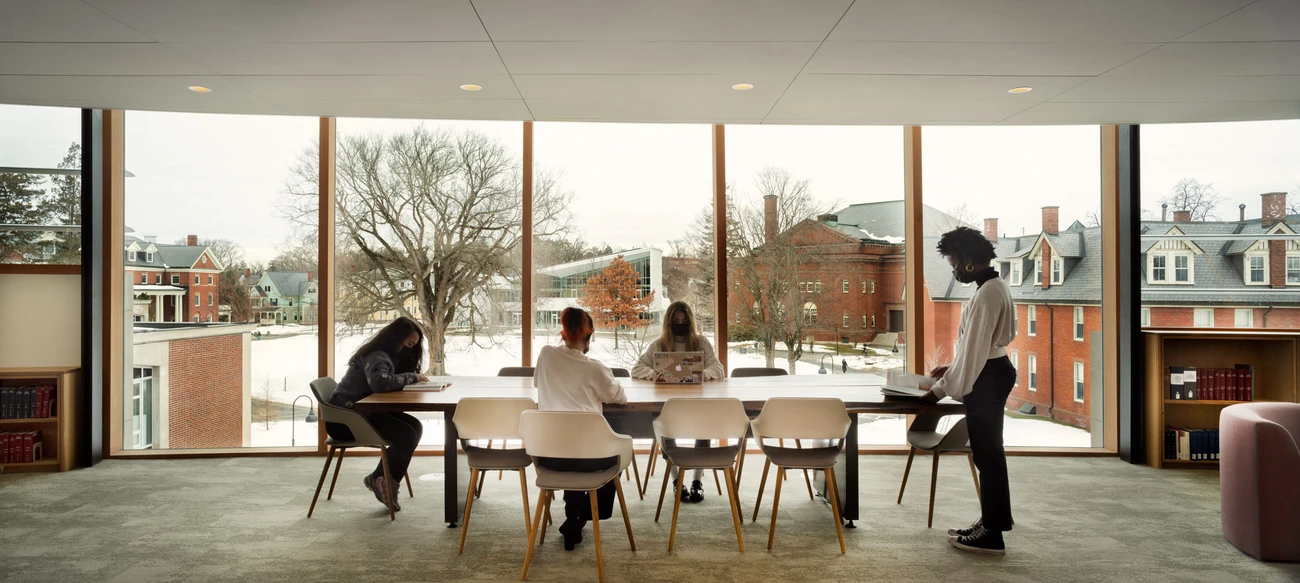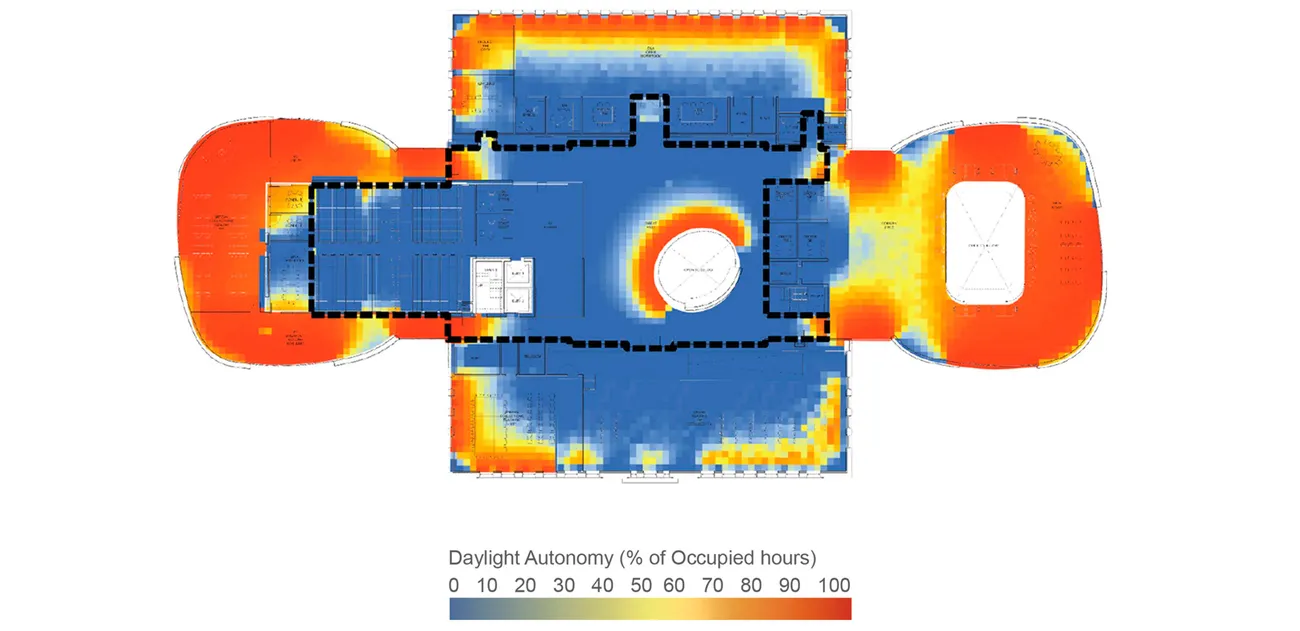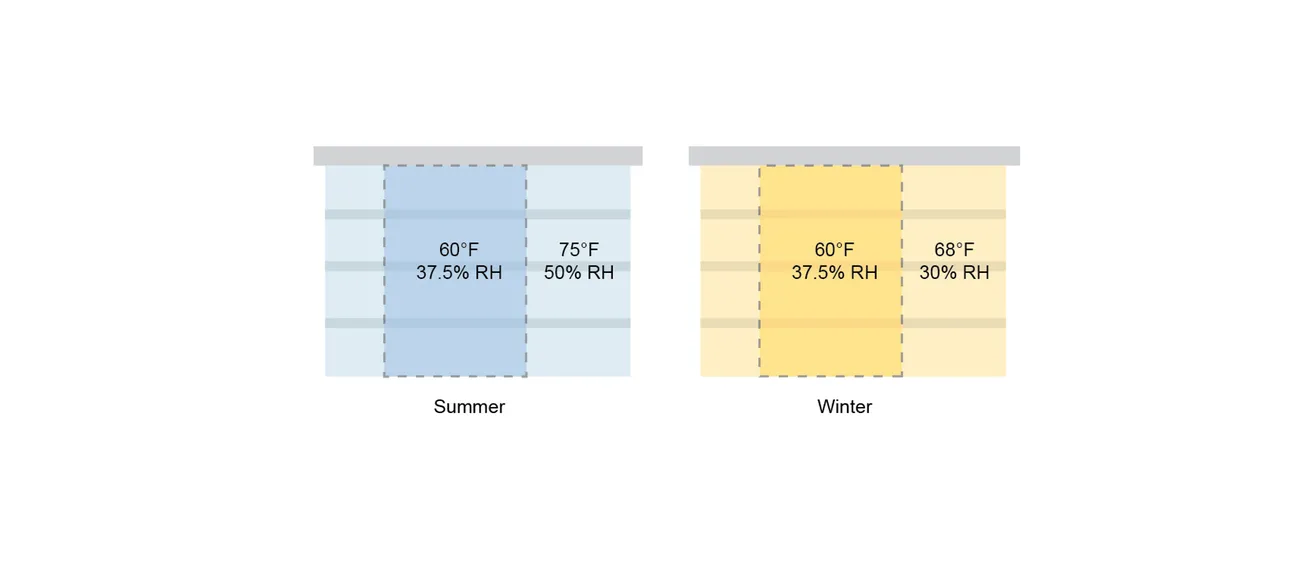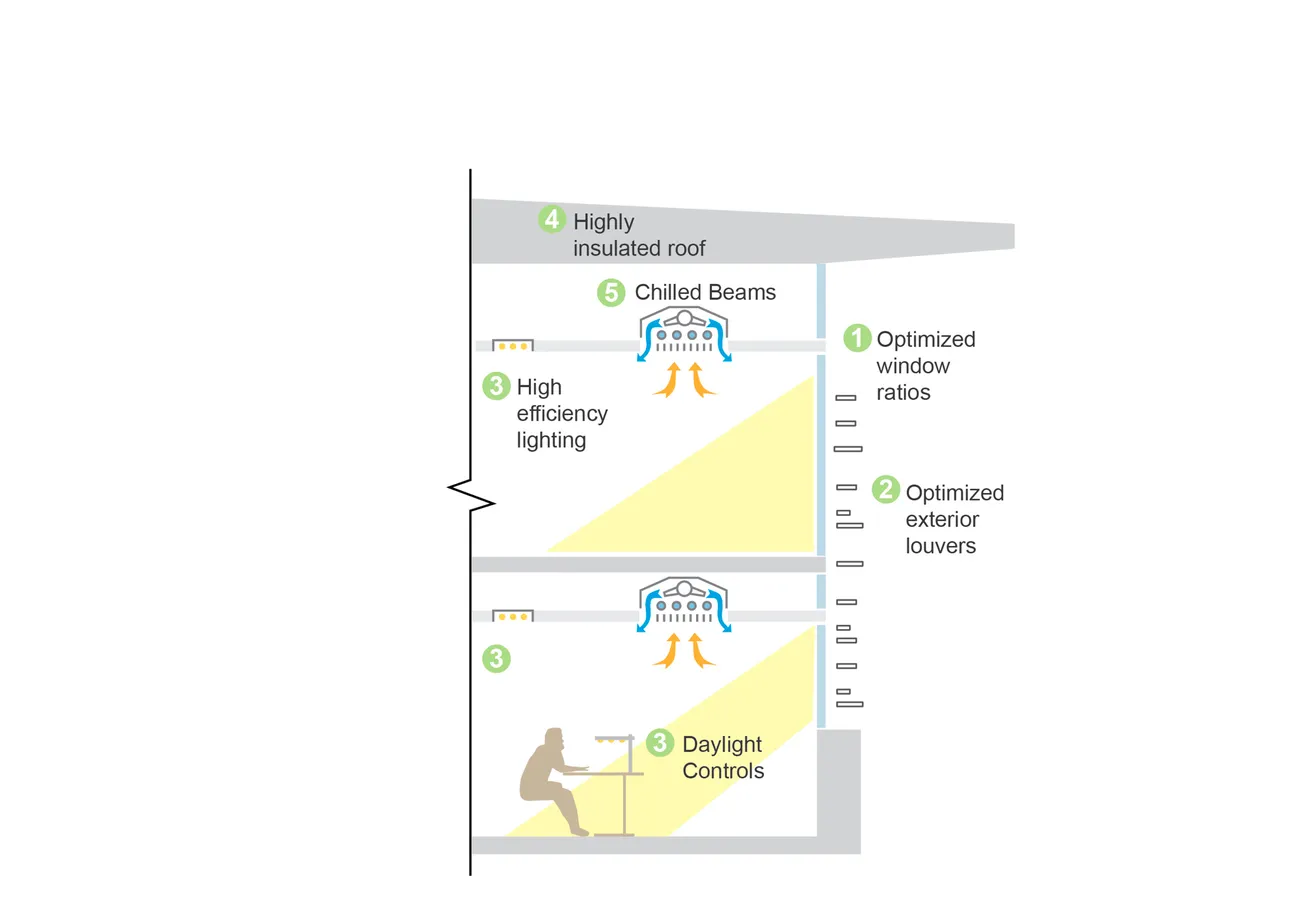New Neilson Library, Northampton, MA, USA
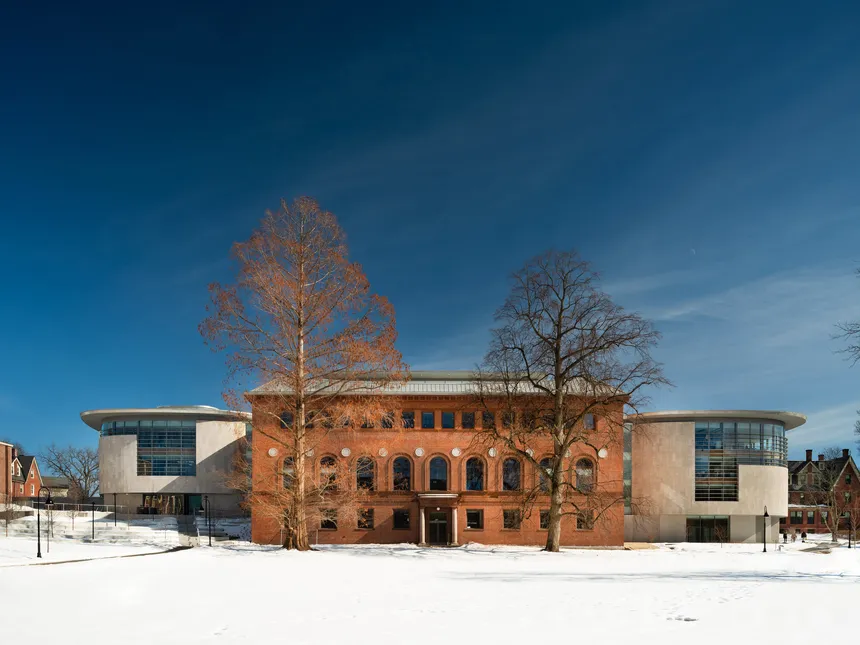
The Neilson Library is the paradigm of sustainability at Smith College. Having undergone several additions since it was built in 1909, the Library continues to not only to preserve Smith College’s collections and archives, but also to be a space for students to study, do research and convene. The renovated library is the original 1909 building with all additions replaced with two jewel boxes to the north and south. The south jewel box uses a “box within box” concept to preserve Smith’s Special Collections, completely wrapping the volume of archive material with a buffer zone of reading areas.
The north jewel box provides additional daylit reading areas with stacks for the general collections which open into a central atrium. The existing 1909 building houses meeting rooms and library reception areas, with a skylight-topped oculus running through to provide deeper daylight. Transsolar’s challenge for the Neilson Library was to provide appropriate environmental conditions for both people and library materials with a wide range of preservation requirements, while minimizing the overall energy demand. Furthermore, the building had to be designed to readily receive and use renewable energy sources as Smith College moves toward a net-zero carbon campus by 2030. Transsolar investigated ventilation rates and temperature and humidity ranges and applied the most current library collections environment and sustainable design research to ensure both safe conditions for archive materials and energy efficient systems. Transsolar’s collaboration with the design team resulted in a high-performance façade with solar shading and high-insulation glazing and walls. The reading spaces are daylit supplemented with daylight-dimming controls on LED lighting fixtures. The smart Climate-Zoning “box within box” concept protects Special Collections with buffer zones. The dedicated outside air ventilation is complemented with radiant panels. The top floor event space is naturally ventilated. Highly efficient heat recovery reduces energy consumption.
The current estimated annual site EUI is 60 kBtu/gsf, 50% less energy consumption compared to a typical library. The project achieved LEEDv4 Gold Certification.
